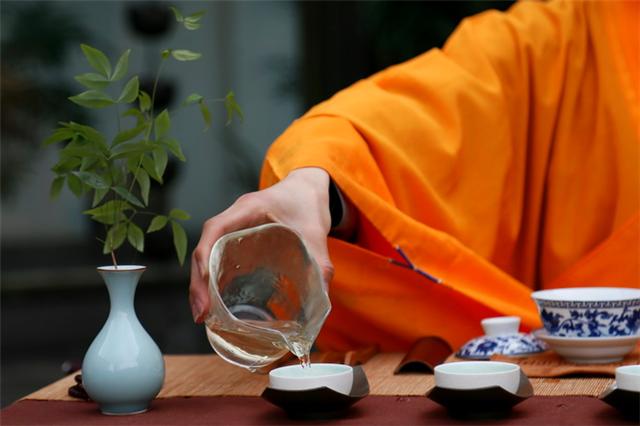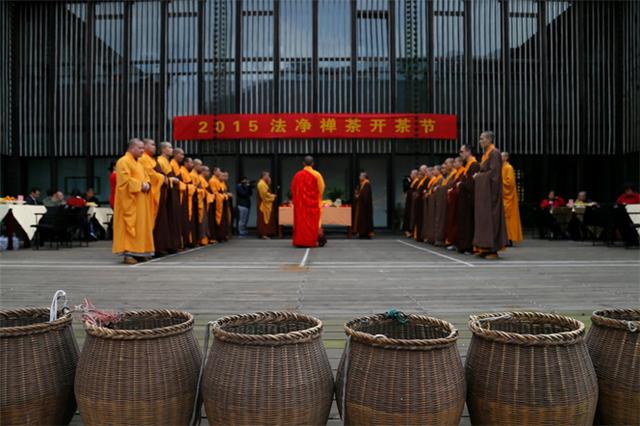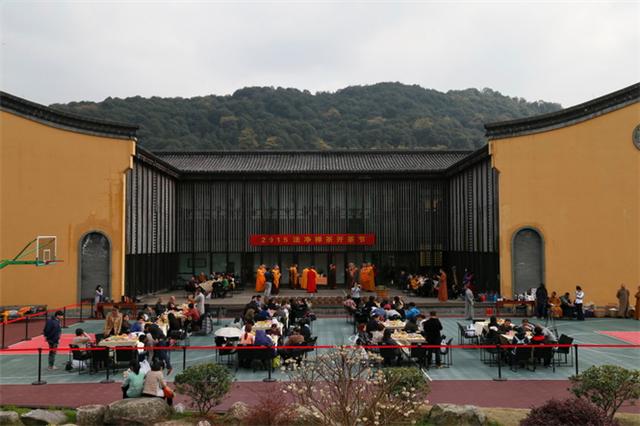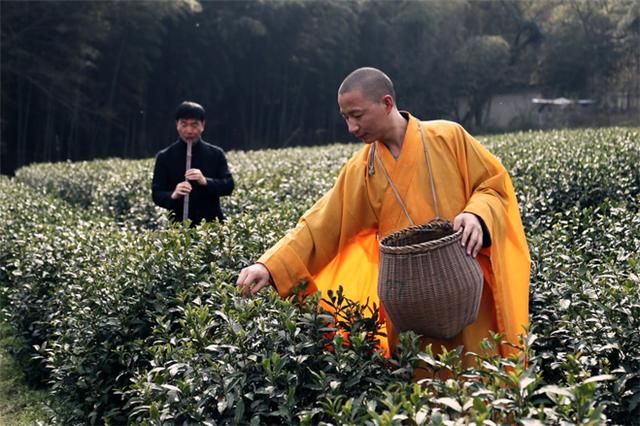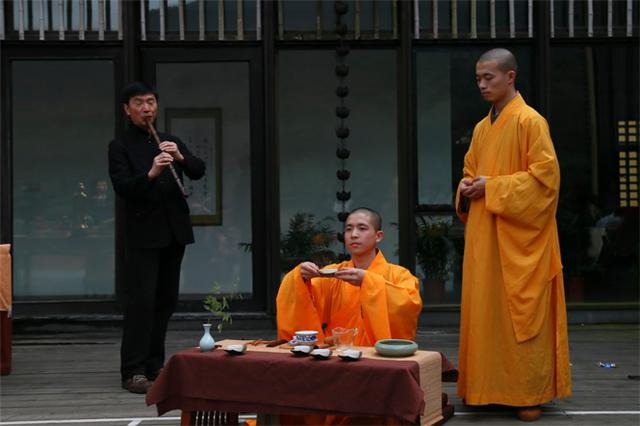According to traditional Chinese customs, the 2nd day of the 2nd lunar month is called the “Dragon Heads-raising Day”, and as the day comes, the harvesting of rare aged Longjing tea trees in Hangzhou officially starts. On March 21, 2015, a grand ceremony in celebration of Chan tea picking in Hangzhou’s Fajing Temple was held. After the ritual purification, the Sangha performed tea picking and processing on site. Secretary-General of Hangzhou Municipal Bureau of Ethnic and Religious Affairs Yang Zhigang, Chairman of Hangzhou Buddhist Association Ven. Guangquan, Vice Dean of Hangzhou Buddhist Academy Master Gangxiao and other honorable guests attended the ceremony.
The Sangha in orange Buddhist robes walked into the verdant tea garden of Hangzhou Buddhist Academy. Led by a sandalwood censer, the Sangha walked through the tea garden while the host Buddhist master sprinkled pure water throughout with the willow branch in his hand. With the spiritual force empowered by reciting Bodhisattva’s name and mantras, Fajing Chan tea shall meet and guide all souls, and have the destined sentient beings connect together and experience the oneness of Chan and tea.
During the ceremony, Master Huihua of Fajing Temple demonstrated the processing of Chan tea for the attendees.
Chan tea in temples of Hangzhou enjoys a long history and an esteemed reputation both home and abroad. The Sangha plant and process the tea, with which they receive guests and form ties with sentient beings, but most importantly, make offerings in reverence to the Buddha. Tea has also traditionally helped Buddhist monks with their Buddhist practices by refreshing minds and facilitating contemplation. In addition, tea reflects the temples’ tradition of placing equal emphasis on both Buddhism studies and self-sustaining agricultural production.
